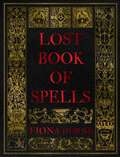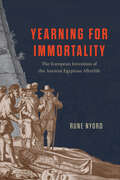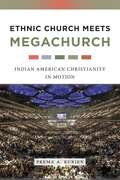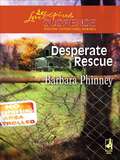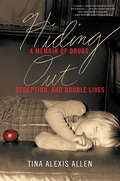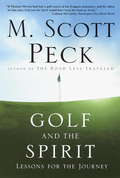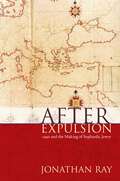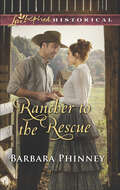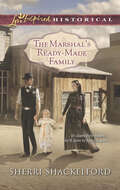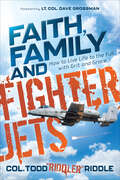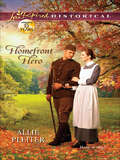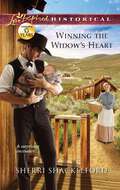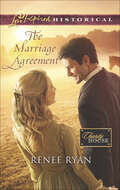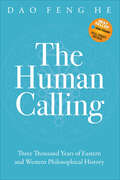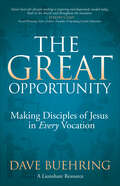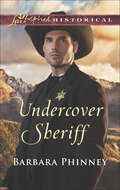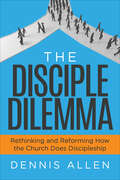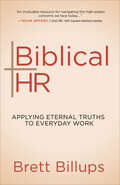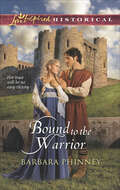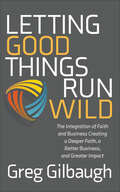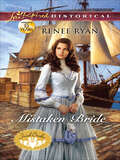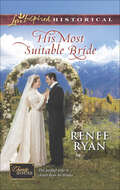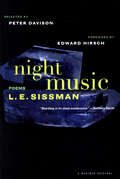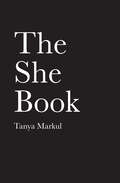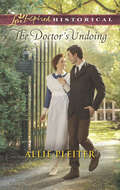- Table View
- List View
Lost Book of Spells
by Fiona HorneDiscover a grimoire of over 150 spells from leading witch Fiona HorneLost for many years, this collection draws together over 30 years of spells old and new created by Fiona Horne for everything from traditional topics such as love and relationships, self-care and wellbeing, and money and work, to up-to-the-minute issues such as social media challenges, environmental concerns and mental health in our busy modern world. Fiona Horne guides you through how to spellcast as well as different kinds of natural magick such as working with the energy of the moon and sun, and shares the secret of crafting a magickal life: stop asking for things just for you and start helping others instead. A treasure trove of magickal advice and know-how, this spell book will show you how to charm away a cold or flu, how to make your in-laws to like you, spells to find new love or add spice to your relationship, magick yourself into a new job and much more. Whether you're an experienced practitioner or just starting on your magickal life, this book is for you.
Yearning for Immortality: The European Invention of the Ancient Egyptian Afterlife
by Rune NyordHow our understanding of the ancient Egyptian afterlife was shaped by Christianity. Many of us are familiar with the ancient Egyptians’ obsession with immortality and the great efforts they made to secure the quality of their afterlife. But, as Rune Nyord shows, even today, our understanding of the Egyptian afterlife has been formulated to a striking extent in Christian terms. Nyord argues that this is no accident, but rather the result of a long history of Europeans systematically retelling the religion of ancient Egypt to fit the framework of Christianity. The idea of ancient Egyptians believing in postmortem judgment with rewards and punishments in the afterlife was developed during the early modern period through biased interpretations that were construed without any detailed knowledge of ancient Egyptian religion, hieroglyphs, and sources. As a growing number of Egyptian images and texts became available through the nineteenth century, these materials tended to be incorporated into existing narratives rather than being used to question them. Against this historical background, Nyord argues that we need to return to the indigenous sources and shake off the Christian expectations that continue to shape scholarly and popular thinking about the ancient Egyptian afterlife.
Ethnic Church Meets Megachurch: Indian American Christianity in Motion (Sexual Cultures)
by Prema A KurienWinner, 2018 Section on Asia and Asian America Book Award presented by the American Sociological Association Traces the religious adaptation of members of an important Indian Christian church– the Mar Thoma denomination – as they make their way in the United States. This book exposes how a new paradigm of ethnicity and religion, and the megachurch phenomenon, is shaping contemporary immigrant religious institutions, specifically Indian American Christianity. Kurien draws on multi-site research in the US and India to provide a global perspective on religion by demonstrating the variety of ways that transnational processes affect religious organizations and the lives of members, both in the place of destination and of origin. The widespread prevalence of megachurches and the dominance of American evangelicalism created an environment in which the traditional practices of the ancient South Indian Mar Thoma denomination seemed alien to its American-born generation. Many of the young adults left to attend evangelical megachurches. Kurien examines the pressures church members face to incorporate contemporary American evangelical worship styles into their practice, including an emphasis on an individualistic faith, and praise and worship services, often at the expense of maintaining the ethnic character and support system of their religious community. Kurien’s sophisticated analysis also demonstrates how the forces of globalization, from the period of colonialism to contemporary out-migration, have brought about tremendous changes among Christian communities in the Global South. Wide in scope, this book is a must read for an audience interested in the study of global religions and cultures.
Desperate Rescue
by Barbara PhinneyNo one left the cult without paying a price. Kaylee Campbell had triedto rescue her sister, only to fall prey to the threats of the leader,Noah Nash. After two horrific years, her faith shaken, she managed tobreak free. But when her sister was murdered in retaliation, Kaylee couldn't ignore her guilt and doubt.Now, on Kaylee's doorstep, there's a mystery man who looks very muchlike Noah, desperate for the help she's quick to deny him. And he sayshe can help her in return-if together they brave a perilous,faith-affirming road.
Hiding Out: A Memoir of Drugs, Deception, and Double Lives
by Tina Alexis Allen“Her twisted mystery, family woes of the nastiest kind and multilayered love stories spin together to form a ‘can’t-put-down’ read.” —The Washington PostThe youngest of thirteen children in a devout Catholic family, actress and playwright Tina Alexis Allen grew up in 1980s suburban Maryland in a house ruled by her stern father, Sir John, an imposing, British-born authoritarian who had been knighted by the Pope. Sir John supported his large family running a successful travel agency that specialized in religious tours to the Holy Land and the Vatican for pious Catholics.But Tina was no sweet and innocent Catholic girl, and she harbored a painful secret: she liked girls. When Tina was eighteen her father discovered the truth about her sexuality—and shocked her with his honest response. He, too, was gay.The secret they shared about their sexuality brought father and daughter closer, and the two became trusted confidants and partners in a relationship that eventually spiraled out of control. Tina and Sir John spent nights dancing in gay clubs together, experimenting with drugs, and casual sex—all while keeping the rest of their family in the dark.Outside of their wild clandestine escapades, Sir John made Tina his heir apparent at the travel agency. Drawn deeper into the business, Tina soon became suspicious of her father’s frequent business trips, his multiple passports and cache of documents, and the briefcases full of cash that mysteriously appeared and quickly vanished. Digging deeper, she uncovered a disturbing facet beyond the stunning double-life of the father she thought she knew.“[Tina Alexis Allen] doesn’t hold back in her memoir Hiding Out.” —Teen Vogue
Golf and the Spirit: Lessons for the Journey
by M. Scott PeckGolf. It's the ultimate head game. And when nothing but the best advice will do, along comes M. Scott Peck, M.D., the celebrated psychiatrist and author of the best-selling self-help book of all time, The Road Less Traveled.In Golf and the Spirit, M. Scott Peck writes a book for beginners and masters alike--and even for nongolfers. It goes beyond mechanics to explore the deeper issues, ways of successfully managing the emotional, psychological, and spiritual aspects of this most wonderful, maddening, deflating, and inspiring game.Playing side by side with M. Scott Peck on an imaginary course of his own design--complete with illustrations of each hole--you will come to see the profound truths in this seemingly simple game. Appreciate that life is not linear. Come to understand your own anger and how to heal that which gets in your way. Accept the gifts of humility. Appreciate kenosis, the process by which the self empties itself of self. Benefit from teachers. Know that in weakness often there is strength. Realize that to experience the blessings of golf and life fully, you must accept the divinity that underlies all things.Like the best-selling volumes of Harvey Penick and Michael Murphy, Golf and the Spirit makes a unique contribution to the literature of golf and life. It goes beyond the body to address the heart and soul of the game, creating a rare opportunity for transformation in the lives of its readers, both on and off the fairway.It seems to me the human condition is most basically that we are willful creatures living in a world that, much of the time, doesn't behave the way we want it to. We live in the tension between our will and reality. Sometimes with great effort and expertise, we can change reality or bend it to our will. At other times--also with great effort and expertise--it is we who must change by coming to accept the limitations of the world and of ourselves. How we do this--how we deal with the hazards of life--is quite akin to how we deal with the hazards of a golf course.Sooner or later golfers who stick with the game long enough will almost always come to see it as a metaphor for life. But the word metaphor fails to do justice to all that golf has to teach us. I would go even further and say that, in its own way, golf is life and, not only that, life condensed. If we choose to use it as such, I believe that golf, next to marriage and parenthood, can routinely be the greatest of life's learning opportunities.
After Expulsion: 1492 and the Making of Sephardic Jewry
by Jonathan S RayA &“groundbreaking&” portrait of the migration and resettlement of Spain&’s Jewish community after 1492, and how the Sephardic identity emerged (American Historical Review). Honorable Mention, Jordan Schnitzer Book Award in Medieval and Early Modern Jewish History presented by the Association for Jewish Studies On August 3, 1492, the same day that Columbus set sail from Spain, the long and glorious history of that nation&’s Jewish community officially came to a close. The expulsion of Europe&’s last major Jewish community ended more than a thousand years of unparalleled prosperity, cultural vitality, and intellectual productivity. Yet, the crisis of 1492 also gave rise to a dynamic and resilient diaspora society spanning East and West. After Expulsion traces the various paths of migration and resettlement of Sephardic Jews and Conversos over the course of the tumultuous sixteenth century. Pivotally, the volume argues that the exiles did not become &“Sephardic Jews&” overnight. Only in the second and third generation did these disparate groups coalesce and adopt a &“Sephardic Jewish&” identity. This is a new and fascinating portrait of Jewish society in transition from the medieval to the early modern period—a portrait that challenges many longstanding assumptions about the differences between Europe and the Middle East. &“A rich and compelling history . . . With its intense focus on one century, Ray&’s book makes a distant time and trauma painfully vivid and immediate to the reader.&” ―Jewish Currents Magazine
Rancher to the Rescue
by Barbara PhinneyA woman agrees to her boss’s convenient wedding proposal, but his past may keep them from a lifetime of love in this inspirational historical romance.A Practical EngagementClare Walsh isn’t too keen on marrying, but it’s the only way for her to keep her family home . . . and custody of her two younger brothers. So when rancher Noah Livingstone offers a union in name only, Clare reluctantly agrees. Accepting Noah’s strictly practical proposal has an unexpected catch, though—she’s actually falling for him.Though Noah is drawn to vibrant, independent Clare, he knows romantic feelings will only complicate their marriage of convenience. But when secrets from his past threaten Noah’s fragile new family, he must make a difficult choice. Will Noah risk all his dreams to secure a real future with Clare?
The Marshal's Ready-Made Family (Prairie Courtships)
by Sherri ShackelfordA lawman with a terrible secret enters a marriage of convenience to protect his niece in this wholesome historical Western romance.Kansas, 1881. Gentlemen don’t court feisty straight shooters like JoBeth McCoy. But just as she’s resigned to a lifetime alone, a misunderstanding forces the spunky telegraph operator into a marriage of convenience. Wedding the town’s handsome new marshal offers JoBeth a chance at motherhood, caring for the orphaned little girl she’s come to love.Garrett Cain will lose guardianship of his niece, Cora, if he stays single, but he knows no woman could accept the secrets he’s hidden about his past. The lawman can’t jeopardize Cora’s future by admitting the truth. Yet when unexpected danger in the small town threatens to expose Garrett’s long-buried secret, only a leap of faith can turn a makeshift union into a real family.
Faith, Family and Fighter Jets: How to Live Life to the Full with Grit and Grace
by Colonel Todd "Riddler" RiddleVoiced from the cockpit of an A-10 Warthog fighter jet, Faith, Family and Fighter Jets leads believers and those seeking truth to discover a faith that overspills a safely compartmented view of religion into a compelling relationship with Christ, invading and weaving through their work, family and relationships with the hope, mission, and inspiration of biblical truth.
Homefront Hero
by Allie PleiterDashing and valiantly wounded, Captain John Gallows could have stepped straight out of an army recruitment poster. Leanne Sample can't help being impressed-although the lovely Red Cross nurse tries to hide it. She knows better than to get attached to the daring captain who is only home to heal and help rally support for the war's final push. As soon as he's well enough, he'll rush back to Europe, back to war-and far away from South Carolina and Leanne. But when an epidemic strikes close to home, John comes to realize what it truly means to be a hero-Leanne's hero.
Winning the Widow's Heart (Prairie Courtships)
by Sherri ShackelfordA Texas Ranger’s quest for vengeance leads him to an unexpected chance at love and family in this sweet and suspenseful historical Western romance.Kansas, 1870s. When Texas Ranger Jack Elder storms an isolated Kansas homestead, he expects to find a band of outlaws. Instead, the only occupant is a heavily pregnant woman—and she’s just gone into labor. A loner uneasy with emotion, Jack helps deliver widow Elizabeth Cole’s baby girl. Then he can’t get back on the trail fast enough. The robber and murderer Jack is after killed one of Jack’s own, and he vows to catch the man. But when he returns to check on Elizabeth and her little one, he discovers that she may hold the key to his unsettled past—and his hoped-for future.
The Marriage Agreement: The Marriage Agreement Cowgirl For Keeps The Lawman's Redemption Captive On The High Seas (Charity House #9)
by Renee RyanA convenient marriage becomes love between a boss and his employee in this inspirational historical romance set in the nineteenth-century American west.Promoted to Wife?Always the dutiful daughter, Fanny Mitchell surprised everyone when she broke her engagement. Now she’s working at the fancy Hotel Dupree—and falling for the mysterious, handsome owner, Jonathon Hawkins. But when she and her boss are caught in an unexpected kiss at a ball, will her reputation be tarnished forever?The son of a woman of ill repute, Jonathon knows that gossip can destroy lives in an instant. And he won’t allow sweet, lovely Fanny to suffer the consequences. When he proposes a marriage of convenience, Jonathon believes he can keep his heart to himself. But the more time he spends with Fanny, the more he realizes he may just be in love—with his wife.
The Human Calling: Three Thousand Years of Eastern and Western Philosophical History
by Dao Feng HeA study of the world’s religious movements and what their history says about society today.The Human Calling is a vigorously researched and profoundly spiritual narrative history of the world’s religious movements as they relate to society’s collective understanding of the duties they have to fellow people and looks ahead to what lessons from history can be applied as people navigate a technological age.Focusing on the rise and fall of spiritual movements in both the East and West, The Human Calling examines what the world’s major religions have historically offered, asks what people are here for outside of pure survival, and makes the persuasive argument for Christianity as the best leader to guide individuals on the path toward better caring for one another—our human calling. The Human Calling takes readers through humanity’s three great thought movements:The first is the Axial Age, the source of the first great human reflection on public spirit and public orderThe second is the twelfth to seventeenths centuries, wrestles with the question of whether people can attain individual rationality in God’s orderThe third delves into the independent reasoning societies of the twentieth and twenty-first centuries and looks forward to what people want their third great reflection on God’s plan to be during their own period of societal flux
The Great Opportunity: Making Disciples of Jesus in Every Vocation
by Dave BuehringThe Great Opportunity takes Christians beyond knowing that their faith should affect their work by showing them why and how to make disciples among those who share their vocation.
Undercover Sheriff
by Barbara PhinneyA sheriff joins forces with a spirited woman to search for missing persons on the western frontier in this nineteenth-century inspirational romance. Former lawman Zane Robinson never thought he’d wear a badge again. But to locate his missing twin brother, Zane’s taking on his identity as sheriff of Proud Bend, Colorado. There he discovers heiress Rachel Smith conducting her own search for a mother and child who’ve also disappeared from the small town. The cases could be connected, so Zane reluctantly agrees to team up with the feisty beauty. Rachel can’t afford to be seen getting too close to Zane—it could impact her ministry for misguided young women. But as the investigation continues, she’s hopelessly drawn to the gruff yet honorable lawman. Though trust doesn’t come easily to Rachel or Zane, in searching for the missing will they risk losing their hearts?
The Disciple Dilemma: Rethinking and Reforming How the Church Does Discipleship
by Dennis AllenThe Disciple Dilemma explains the realities and limitations of using classic business logic and strategy within the Christian community and makes the case that Christian leaders must restructure their organizations to conform to Christ’s mission.
Biblical HR: Applying Eternal Truths to Everyday Work
by Brett BillupsA unique, practical step-by-step guide to deal with specific, employee workplace issues from a biblical perspective.
Bound to the Warrior
by Barbara PhinneyA Heart UnconqueredWidowed Saxon Lady Ediva Dunmow will do anything to protect her people-even marry one of the invading Norman knights. The king sees it as a way to keep Ediva, her lands and her tenants subdued. But Ediva's embittered heart, still healing from the abuse of her first husband, will not yield so easily.Marriage never held any appeal for Adrien de Ries. Yet it is his king's will, and perhaps his Lord's, too-though he finds his faith tested daily by Ediva's staunch refusal to trust him. As a knight, Adrien survived many battles, but the fight to win Ediva's heart may be his most challenging-and rewarding.
Letting Good Things Run Wild: The Integration of Faith and Business Creating a Deeper Faith, a Better Business, and Greater Impact
by Greg GilbaughA practical, yet powerful resource that integrates personal faith with business interests to help readers deepen their faith while building a better business.
Mistaken Bride (Irish Brides #2)
by Renee RyanSecond in the series of three Irish sisters who travel to America for adventure—and love—from the author of The Wedding Journey and A Baby Between Them.When William Black’s mail-order bride fails to appear at the Boston docks, he’s relieved when beautiful, vibrant Bridget Murphy steps in. However, she has a surprise in store. She will be a temporary nanny to his young twins . . . but she will not marry without love.Faith Glen, Massachusetts, is worlds away from the poverty Bridget knew in Ireland. And William Black couldn’t be more different from her faithless ex-fiancé. Yet that integrity Bridget so admires binds William to a promise that could keep them apart forever. In this new land of opportunity, does she dare to wish for a happy ending?
His Most Suitable Bride (Charity House #8)
by Renee RyanWhen her boss gives her the job of finding a handsome lawyer a wife, a woman falls for the bachelor herself in this inspirational historical romance.No one in Denver knows how close Callie Mitchell once came to ruin. Dowdy dresses and severe hairstyles hide evidence of the pretty, trusting girl she used to be. Now her matchmaking employer wants Callie to help find a wife for the one man who sees through her careful facade.For his business’s sake, Reese Bennett Jr. plans on making a sensible marriage. Preferably one without the unpredictable emotions that spring to life around Callie. Yet no matter how many candidates she presents to Reese, none compare with the vibrant, intelligent woman who is right under his nose—and quickly invading his heart.
Night Music: Poems
by L. E. SissmanSelected by Peter Davison with an introduction by Edward Hirsch. Sissman was a true phenomenon in American poetry. He published his first book, a collection of antic, autobiographical episodes in blank verse, in 1968. Eight years and three books later, he died of Hodgkin's disease at the age of forty-eight. Of Sissman's remarkable final poems John Updike wrote, "What other poet had ever given such wry and unblinking witness to his own dying? His poetry gave back to life more generously than he had received, and carried his beautiful wit into darkness undimmed." Now Sissman's longtime editor, Peter Davison, has selected from his lifework the essential poems--the essence of an American original. (A Mariner Original)
The She Book
by Tanya MarkulCrafting together the power of words and womanhood, writer Tanya Markul has written a completely unique poetry collection fit for the phenomenal readers of today.In Tanya's words, "May we raise the bar for how we live our lives. May we ridiculously increase the amount of peace, play, creativity, beauty, love, and joy in everything we do. May we all sip from the wisdom of our suffering. And awaken with the courage to share our stories that can heal our inner and outer worlds."
The Doctor's Undoing
by Allie PleiterEven a doctor’s heart needs some tender, loving care—and she’s the best woman for the job: an inspirational romance from the author of Small-Town Fireman.When Dr. Daniel Parker requested an army nurse to help with his orphanage, he expected an organized, sensible matron. Instead he gets young, beautiful, obstinate Ida Lee Landway, whose vibrant outlook and unrelenting optimism turn his work and his life inside out.Army life was easy compared to the discipline at her new workplace. Yet Ida is immediately smitten by the children in her care—and impressed by Daniel’s unfaltering dedication. Adding color and warmth to her new surroundings is one thing. Can she also help the good doctor embrace joy—and in so doing, find the family they both deserve?
